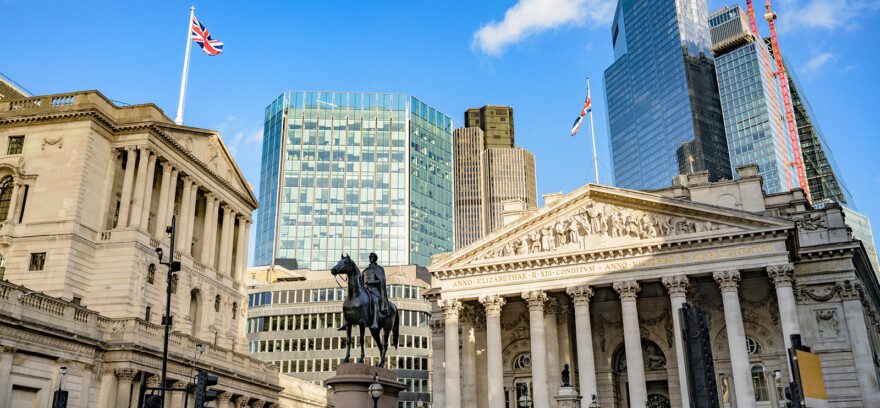UK markets were volatile this week, as the fallout from the banking sector continues to spook investors, with the FTSE 100 Index falling by 1.14% to trade at 7,360 points at the time of writing.
The annual rate of consumer price inflation in the UK unexpectedly rose to 10.4% in February, the Office for National Statistics said on Wednesday, up from 10.1% in January. This was higher than the 9.9% forecasted by the Bank of England and prices were up 1.1% compared with the previous month, nearly double the 0.6% increase forecast by analysts.
Earlier in the week, UK chancellor Jeremy Hunt warned that inflation levels above 10% were dangerously high and were destabilising the economy. The Bank of England increased interest rates by 0.25% to 4.25% on Thursday, despite the turmoil in the banking sector in recent weeks.
It was the 11th consecutive increase from the UK central bank, which started raising rates in December 2021. The Bank of England has left its options open on whether to raise interest rates any further in future meetings, saying this would depend on emerging evidence and that the financial and economic outlook has become more uncertain.
It also judged UK banks to be resilient and well placed to continue supporting the economy in a wide range of economic scenarios, including a period of higher interest rates. The British pound rose above $1.22 this week, approaching its strongest levels since June 2022 after the Bank of England rate rise.
Borrowing costs are now at their highest levels since 2008, as the central bank prioritised restoring price stability over short term volatility in the banking sector. Retail sales in the UK unexpectedly rose 1.2% month on month in February of 2023, following an upwardly revised 0.9% rise in January and compared to forecasts of a 0.2% gain.
Commodity markets
In the commodity markets, Brent Crude futures traded around $75 per barrel on Friday, rebounding somewhat after prices dived to their lowest levels in 15 months earlier in the week. Oil prices were weighed down as the market worried that risks in the global banking sector could spark a recession that would sap fuel demand.
US Energy Secretary, Jennifer Granholm, told lawmakers that it will be difficult to refill strategic oil reserves this year, prompting speculations that the US government would only start buying at even lower prices. Signs of robust oil supplies from Russia also weighed on prices, as the previously announced cut in the country’s oil production would come from a higher base of output than initially indicated.
Gold traded around $1,900 per ounce on Friday, the highest levels in a year, as investors digested the Federal Reserve’s March meeting and risks to the global banking system. Precious metals were also supported by a fresh flight to safety after Treasury Secretary, Janet Yellen, told lawmakers the US government was not considering the protection of all deposits in the US banking system by the government.
US equity markets
US equity futures fell on Friday, after a volatile session on Thursday, as investors continued to digest tightening monetary conditions and an ongoing banking crisis. In Thursday’s regular trading session, The Dow Jones Industrial Average rose 0.23%, while the S&P 500 Index gained 0.3% and the Nasdaq Composite jumped 1.01%. The Federal Reserve rose interest rates by 0.25% on Wednesday, despite the recent turmoil in the banking sector, but signalled it may soon end its monetary tightening campaign.
Following its latest two-day meeting, the Federal Open Market Committee voted to lift the federal funds rate to a new target range of 4.75% to 5%, the highest level since 2007. Federal Reserve Chair, Jerome Powell, also pushed back against any interest rate cuts in 2023 and said the central bank would extend tightening if needed.
However, investors are now betting that the Federal Reserve’s interest rate rise this week will be the last in its campaign to tighten inflation, with the failure of two regional US banks and a rescue deal for Credit Suisse aiding the central bank’s mission to tighten financial conditions. Investors are now looking ahead to US durable goods, manufacturing, and services data to be released later on Friday for further insight into the health of the American economy.
The information provided in this communication is not advice or a personal recommendation, and you should not make any investment decisions on the basis of it. If you are unsure of whether an investment is right for you, please seek advice. If you choose to invest, your capital may be at risk and the value of an investment may fall as well as rise in value, so you could get back less than you originally invested.
